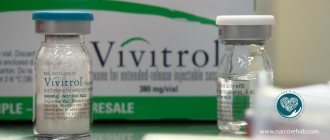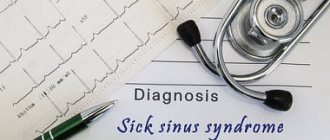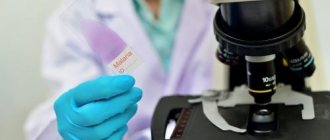Today, medicine states that there is a constant increase in the percentage of men over 45 years of age who are faced with problems of a sexual nature. Erectile dysfunction and decreased libido are increasingly worrying representatives of the stronger sex, but, as a rule, they are embarrassed to talk about the possibility of an intimate disease and consult a doctor. From a medical point of view, erectile dysfunction develops when the cells of the walls of blood vessels are unable to produce nitric oxide (NO), which is responsible for the process of blood supply to the penis. With this disease, men are actually unable to have full sexual intercourse.
Modern medicine considers the treatment of sexual disorders from an innovative perspective, using new and more advanced methods and medications. When choosing the safest method of combating erectile dysfunction, even the smallest features of the body are taken into account, which helps to select drugs to improve potency as effectively as possible, preventing the problem from returning.
Erection mechanisms
Before describing the most effective methods and drugs that increase potency in men, it is worth examining in detail the process of erection. The male reproductive organ consists of a corpus spongiosum and two cavernous bodies, each of which has its own artery and vein, but has no connection with other bodies through blood vessels. The bodies of the penis contain a huge number of small cavities, with the help of which the phenomenon of erection is achieved. If a man has sexual desire, then there is an expansion of the arteries that carry blood to the cavernous and spongy bodies, and a simultaneous narrowing of the veins through which the blood flows. As a result, a significant amount of blood accumulates in the cavities, and an erection occurs. If for any reason this mechanism “breaks down,” they speak of “erectile dysfunction.”
Impaza is a new effective drug for increasing potency, which has a positive effect on all components of male sexual life.
Treatment with Impaza is indicated for disorders such as decreased libido and erectile dysfunction, and drugs of this group can be used not only for the treatment, but also for the prevention of disorders in intimate life. The effectiveness of this method of treating erectile dysfunction without surgery has been proven by numerous clinical studies that have revealed the peculiarities of the action of the drug.
Effect of the drug
Effective drugs that increase potency should act on the mechanism of dilation of blood vessels responsible for blood supply to the penis. Over the course of many years of work and a large number of tests, it was revealed that the dilation of blood vessels is associated with the production of nitric oxide (NO), for which the enzyme endothelial NO synthase is responsible. In men, when this enzyme is disrupted, not only erectile dysfunction is observed, but also other diseases (atherosclerosis, diabetes, hypertension, etc.). If the function of the vascular endothelium is disrupted, then the production of factors that regulate the tone of the smooth muscles of the vascular wall is also disrupted. The main molecule responsible for muscle relaxation and vasodilation is NO (nitric oxide).
Many modern methods and drugs for increasing potency in men and restoring erections have no effect on stimulating the production of NO (nitric oxide), but only block the destruction of intracellular “messengers”. But the treatment of erectile dysfunction will be much more effective when using drugs based on the production of NO (nitric oxide).
The qualitative difference between Impase and most drugs is that the target of its action is the endothelial NO synthase (eNOS) molecule. Thus, weak erections can be cured by increasing the activity of endothelial NO synthase (eNOS) and restoring adequate NO (nitric oxide) production during sexual stimulation. The action of the drug Impaza helps to increase the content of cyclic guanosine monophosphate (cGMP) in smooth muscles and their relaxation, leading to improved blood supply to the cavernous bodies. It is necessary to pay attention to the fact that the earlier treatment is started, the faster the restoration of erection occurs. But the more the endothelium is damaged, the more time it takes to treat sexual dysfunction.
Advantages of treatment with Impaza
Restoring an erection
. Impaza helps improve the functioning of penile vessels by regulating the production of endothelial NO synthase and restoring endothelial functions. The use of the drug on a regular basis increases the level of testosterone in the blood serum with its moderately reduced initial level. To normalize the functioning of blood vessels and get rid of erectile dysfunction, it is necessary to undergo a course of treatment with Impaza - according to the results of the study, thanks to this method, sexual dysfunctions are eliminated after 12 weeks of constant use of the drug. After completing the course of treatment, healthy erections return to 75.3% of patients.
Normalization of sexual desire (libido)
. In addition to restoring the functioning of blood vessels, treatment with Impaza eliminates psycho-emotional disturbances in the patient’s sexual life. Nitric oxide has a beneficial effect on the hypothalamus - the “pleasure center”, and stimulates the erogenous zones. During the course of treatment for erectile dysfunction, libido and satisfaction with sexual intercourse gradually increase. Clinical studies show that after using Impaza for 6 months, sexual desire increases in 85.7% of patients.
Maintaining the therapeutic effect after completion of therapy
. When using this treatment method, the absence of signs of erectile dysfunction persists for 6 months from the end of taking the drug in 75% of patients. Thanks to Impaza, a man can have regular sex life without using drugs for one-time erection stimulation.
Preventive effect
. Impaza can not only treat erectile dysfunction, but also prevent its occurrence. According to clinical studies, preventive use of the drug reduces the risk of sexual dysfunction. This effect of the new drug is especially important for men with a high risk of erectile dysfunction - patients with chronic prostatitis and diabetes mellitus.
Unique release form
. Impaza is a drug for eliminating the symptoms of erectile dysfunction, available in the form of lozenges. This form of release allows you to adhere to the drug dosage regimen in any conditions, including during long car trips. Tablets for increasing potency dissolve quickly, do not have a negative effect on the gastrointestinal tract, and do not cause discomfort or heartburn.
Compatible with cardiovascular drugs and other medications
. The method of treating erectile dysfunction with Impaza is suitable for patients taking drugs based on organic nitrates - men with arterial hypertension, coronary heart disease and other cardiovascular disorders. The drug, which improves erection, is used in complex therapy to improve the results of treatment of prostate diseases: prostatitis and prostate adenoma.
Availability
. Impaza is an over-the-counter remedy for erectile dysfunction. Such drugs to increase potency are sold in pharmacies without a doctor's prescription.
Pronounced therapeutic effect
. Taking Impaza is a method of treatment for erectile dysfunction, and not a temporary activation of sexual desire, which is the goal of popular stimulant drugs for potency. A course of taking the drug allows the blood vessels to “learn” to produce nitric oxide, which is necessary for the full functioning of the male body. Treatment with Impaza requires from 1 to 3 months, but this method gives a more reliable result than stimulation - the medicine eliminates erectile dysfunction and the need to take other medications for a long time.
Impaza
Page content
Home / Instructions
Registration number:
No. LP-N (000026) - (RG-RU)
Trade name:
Impaza
Dosage form:
lozenges
Composition (per 1 tablet)
Active components: antibodies to endothelial NO synthase, affinity purified – 0.003 g*. Excipients: lactose monohydrate 0.267 g, microcrystalline cellulose 0.03 g, magnesium stearate 0.003 g.
*applied to lactose monohydrate in the form of a water-alcohol mixture containing no more than 10-15 ng/g of the active form of the active substance.
Description
Flat-cylindrical tablets with a score and a bevel, from white to almost white. On the flat side with a notch there is the inscription MATERIA MEDICA, on the other flat side there is the inscription IMPAZA.
Pharmacotherapeutic group
Drugs for the treatment of erectile dysfunction.
ATX code:
G04BE
pharmachologic effect
Increases the activity of endothelial NO synthase, restores endothelial production of nitric oxide (NO) during sexual stimulation, increases the content of cyclic guanosine monophosphate (cGMP) in smooth muscles and promotes their relaxation, which leads to an increase in blood supply to the cavernous bodies and provides sufficient strength and duration erection.
The drug increases libido (sexual desire) and satisfaction with sexual intercourse. Regular use of the drug helps to increase testosterone levels in the serum (with a moderately reduced initial level).
Pharmacokinetics
The sensitivity of modern physicochemical methods of analysis (gas-liquid chromatography, high-performance liquid chromatography, gas chromatography-mass spectrometry) does not allow assessing the content of the active substance of the drug Impaza in biological fluids, organs and tissues due to the specific composition of the drug (see section “Composition (for 1 tablet )"), which makes it technically impossible to study pharmacokinetics.
Indications for use
Impaza is indicated for use in adults. Erectile dysfunction (erectile dysfunction) of various origins.
Contraindications
Increased individual sensitivity to the components of the drug; age under 18 years; lactase deficiency, lactose intolerance, glucose-galactose malabsorption
Use during pregnancy and breastfeeding
Impaza is not intended for use in women.
Directions for use and doses
The score is not intended to divide the tablet into parts. For one dose – 1 tablet (keep in mouth until completely dissolved - not during meals). To improve erection (the ability to have sexual intercourse), a therapeutic and prophylactic course lasting at least 12 weeks, 1 tablet 1-2 times a day, is recommended. If necessary, course therapy can be repeated after 3-6 months.
Side effect
Reactions of increased individual sensitivity to the components of the drug are possible.
Overdose
In case of accidental overdose, dyspepsia may occur due to the excipients included in the dosage form.
Interaction with other drugs
It is possible to use Impaza while taking nitrates in patients with coronary heart disease (angina pectoris I-II functional class), as well as use in conjunction with beta-blockers, diuretics, angiotensin-converting enzyme (ACE) inhibitors, calcium antagonists.
special instructions
The drug contains lactose monohydrate, and therefore it is not recommended for use in patients with congenital galactosemia, glucose or galactose malabsorption syndrome, or congenital lactase deficiency.
Impact on the ability to drive vehicles and machinery
No negative effect of the drug Impaza on the ability to drive vehicles and other potentially dangerous mechanisms has been identified.
Release form
Lozenges. 20 tablets each in a blister pack made of polyvinyl chloride film and aluminum foil. 1, 2 or 5 blister packs together with instructions for medical use are placed in a cardboard pack.
Storage conditions
At a temperature not higher than 25 °C. Keep out of the reach of children. During the period of use of the drug, store the blister pack in a cardboard box provided by the manufacturer.
Best before date
3 years. Do not use after the expiration date.
Conditions for dispensing from pharmacies
Over the counter.
The legal entity in whose name the registration certificate was issued and the organization accepting claims on the territory of the Russian Federation
LLC "NPF "MATERIA MEDICA HOLDING"; Russia, 127473, Moscow, 3rd Samotechny lane, 9. Tel./fax: +7 (495) 684-43-33. Hotline numbers: +7, +7 E-mail
Address of the place of production of the medicinal product
Russia, 454139, Chelyabinsk, st. Buguruslanskaya, 54.
Research results
A study was conducted at the Urology Research Institute to evaluate the effectiveness of the treatment of erectile dysfunction with the new drug Impaza. It involved 30 patients with erectile dysfunction of varying severity, aged from 24 to 64 years. The study did not include patients who required surgical treatment of the disease, as well as men who regularly take medications that affect erection.
As a result of the study, it was revealed that after using Impaza, the majority of men had improved erectile function, increased erectile function scores on the IIEF scale, and increased overall satisfaction with sexual intercourse. Also, in most patients with erectile dysfunction, a positive effect was observed 1 month after taking Impase, and the effect persisted throughout the study. The treatment was most effective for patients aged 24 to 47 years. No undesirable effects were reported in any man, regardless of the daily dose and the presence of concomitant diseases.
If you want to consult with a specialist on drug treatment for a disease such as erectile dysfunction and clarify information about the drug Impaza, you can write to us using a special form in the Feedback section or call the hotline, +7 (495) 681 93 00.
The drug Impaza is the secret to a full-fledged sex life for every man!
An open-label, non-comparative study of impaza for the treatment of erectile dysfunction.
E. B. Mazo, S. I. Gamidov, R. I. Ovchinnikov
OPEN, NON-COMPARATIVE STUDY OF IMPAZA FOR THE TREATMENT OF ERECTILE DYSFUNCTION
Urological Clinic (Head - Corresponding Member of the Russian Academy of Medical Sciences, Prof. E. B. Mazo) Russian State Medical University, Moscow
Introduction. Erectile dysfunction (ED) is a chronic condition and can be defined as the inability to achieve and/or maintain an erection sufficient to satisfy sexual activity. The prevalence of ED among men of all ages is 10%, and in the group of men 40–70 years old it reaches 52% [1].
Of all the mechanisms of ED, one of the most common is endothelial dysfunction, which consists of inadequate production of nitric oxide (NO) by the vascular endothelium in response to adequate stimuli (hemodynamic effects, cholinergic stimulation, etc.).
In recent years, ED has been shown to be a largely treatable condition. The requirements for drugs intended for the treatment of ED are formulated: high efficiency, reliability, good tolerability, painlessness, non-invasiveness.
The targets of the most effective modern drugs for the treatment of ED are, firstly, endothelial function (for phosphodiesterase type 5 inhibitors), and, secondly, central dopaminergic mechanisms (for apomorphine).
Studies conducted on the use of sildenafil citrate - SC (Viagra) for ED have shown high effectiveness (58-85%) of the drug in the treatment of ED [2, 3]. At the same time, the high cost of the drug and the significant risk of developing adverse drug reactions, especially in patients with cardiovascular diseases, limit the widespread use of this drug. In addition, there is a group of patients (15-42%) in whom the use of SC is ineffective [4, 5]. The above dictates the need to search for new highly effective, safe and affordable drugs for the treatment of ED.
Since 2002, a new domestic drug for the treatment of ED, Impaza, has been introduced into practice. The theoretical prerequisite for the creation of impase (the active substance is antibodies to endothelial NO synthase in ultra-low doses) was the discovery of the modifying properties of ultra-low doses of antibodies (O. I. Epshtein, M. B. Stark, T. M. Vorobyova, 1999).
The mechanisms of action of impase as a representative of a new class of drugs based on ultra-low doses of antibodies, on the one hand, and a fundamentally new means of restoring erectile function, on the other, can be judged with sufficient confidence on the basis of experimental studies.
Preclinical studies allowed us to draw the following conclusions. When administered orally to male rats under conditions of physiological (seasonal) and age-related suppression of reproductive function, impaza reliably stimulates sexual behavior and increases the copulatory function of animals. At the same time, changes in some indicators indicate that the drug has central effects on erection mechanisms [6, 7].
During the administration of impase, a significant increase in the intracellular level of cyclic guanosine monophosphate in the tissue of the corpora cavernosa was detected (similar data were obtained for SC) [8]. Both single and course administration of impase (as opposed to SC) increases the content of NO derivatives in the tissues of the corpora cavernosa.
The increase in NO content in the tissue of the corpora cavernosa of animals treated with impaza is due to a twofold increase in the activity of NO synthases (the sources of NO in the corpora cavernosa are neuronal and endothelial NO synthases).
Thus, the main peripheral mechanism of action of impase has been experimentally confirmed: an increase (restoration) of the activity of NO synthase, the key enzyme that determines the maintenance of an erection, i.e., with the administration of the drug, the ability of the endothelium to produce NO increases (restores), which means that impase helps restore endothelial function.
The results of preclinical and clinical studies of the new Russian homeopathic drug anti>Yusynthase C12 + S3O + C200 (impaza) suggest that the drug has the ability not only to improve, but also to restore erectile function.
Material and methods. Employees of the urological clinic of the Russian State Medical University, together with the NPO Materia Medica, conducted an open, non-comparative study of the drug impaza as a treatment for ED, the purpose of which was to assess the clinical effectiveness and safety of the drug.
According to the protocol, men with complaints of decreased erection were included in the study. The inclusion criteria for the study were: patients aged 45 to 65 years with symptoms of ED. Assessment of erectile function on the IIEF scale (International Index of Erectile Function) from 10 to 25 points, availability of a protocol of informed consent for the study. Treatment was carried out on an outpatient basis and in a hospital. Exclusion criteria: regular use of medications leading to the development of ED during the study period; simultaneous use of SC or other drugs intended for the treatment of ED, chronic alcoholism; confirmed endocrine causes of ED development. And also if the erectile function score on the IIEF scale is less than 10 points, in the presence of sexually transmitted diseases, the patient’s inability to adequately fill out the IIEF questionnaire; decompensated diseases that may affect the conduct of the study; hypersensitivity to any of the components of the drugs used in the study; participation in other clinical trials within the last month or currently.
The study was conducted in 30 patients with ED aged 45-65 years (average age 52.09 ± 4.75 years), of which 11 suffered from arterial hypertension, 7 from spinal osteochondrosis, 3 from diabetes mellitus, 2 had a history of blunt perineal trauma , 1 - multiple sclerosis, 1 underwent radical prostatectomy, 5 were diagnosed with psychogenic ED.
The average body weight of patients was 84.58 ± 15.98 kg (60–125 kg). Heart rate 71.6 ± 4.67 beats/min (62–82 beats/min). Systolic blood pressure 127.75 ± 15.37 mmHg. Art. (110-170 mm Hg), diastolic - 84.1 ± 11.11 mm Hg. Art. (70-110 mmHg). The duration of ED was 2.11 ± 1.76 years (0.2–7 years). The majority of patients (24 patients - 80%) experienced a gradual increase in signs of ED, which indicated the organic nature of ED. Only in 6 (20%) patients was it possible to establish a connection between ED and a specific event. The most common events associated with ED were stress, job change, divorce, or death of a sexual partner. The vast majority of patients (28 people - 93.3%) had only one sexual partner.
All patients underwent an examination, which included an analysis of medical history data, a history of sexual activity, a questionnaire on the IIEF scale, an intracavernosal pharmacological test, Doppler ultrasound of the vessels of the penis before and after simulated artificial erection, electromyography of the penis, a study of blood hormones (testosterone, prolactin, thyroid-stimulating hormone , triiodothyronine, thyroxine) and standard laboratory tests (complete blood count, urinalysis, blood glucose, creatinine, lipid profile) to exclude chronic diseases.
All patients took 1 tablet of Impaza every other day, regardless of sexual intercourse (it was recommended to keep the tablet in the mouth until completely absorbed) for 12 weeks. The number of attempts at sexual intercourse is at least 4 per month.
The effectiveness of treatment was assessed by changes in IIEF indicators, subjective assessment of clinical effectiveness by the patient, assessment of clinical effectiveness by the doctor (excellent effect - an increase in the “erectile function” indicator by more than 50% or achieving a scale value of 25 points or higher, a good response - an increase in the indicator by 30– 50%, satisfactory response - by 10-30%, without effect - a change in the indicator by ± 10%, deterioration - a decrease in the indicator by 10% or more), assessment of the patient’s tolerability of therapy, the presence and nature of adverse events during the period of active therapy.
The effectiveness of impase depending on the pathogenesis of ED
| Pathogenesis of ED | Efficiency | |||
| excellent | good | satisfactory | ineffective | |
| Psychogenic (n = 5) | 4 | 1 | 1 | — |
| Arterial (n = 10) | 3 | — | 1 | 5 |
| Veno-oculosal (n = 1) | — | 2 | — | 1 |
Neurogenic (n =  | 4 | — | 1 | 1 |
| Nsyroartsrial (n =4) | — | 1 | 2 | 2 |
| Arteriovenous (n=2) | — | — | — | 1 |
| Total… | 11 | 4 | 5 | 10 |
23 (76.7%) patients received regular drug therapy for concomitant diseases (nitrates, angiotensin-converting factor inhibitors, calcium antagonists, blockers, non-steroidal anti-inflammatory drugs, hypoglycemic drugs), the volume of which did not change during the study. About half of the patients (14 people - 46.7%) were active smokers. 13 (43.3%) patients did not drink alcohol at the time of the study, 14 (46.7%) drank alcohol occasionally (once a week or less), 3 (10%) drank alcohol more than once a week. The vast majority of patients included in the study (27 people (90%) had not previously received specific treatment, 3 (10%) patients had previously received SC with a positive effect, but stopped treatment due to its high cost.
According to the results of a comprehensive andrological examination, ED in pathogenesis was psychogenic in 5 (16.7%), organic in 25 (83.3%) patients, of which arteriogenic in 10 (33.3%), veno-occlusive in 1 (3.3%). ), neurogenic in 8 (26.7%), neuroarterial in 4 (13.3%), arteriovenous in 2 (6.7%) patients. The level of hormones in the blood was within the age norm in all cases.
Results and discussion. Before treatment, the average “erectile function” score on the IIEF scale
was 18.89 + 5.25 points (10-25 points), after 3 months 22.50 ± 4.86 points (10-29 points). At the same time, in 11 (36.7%) patients the effectiveness of treatment was assessed as excellent (mainly due to the achievement of the “erectile function” indicator value of 25 points or more), in 4 (13.3%) - as good, in 5 ( 16.7%) - as satisfactory, in 10 (33.3%) - without effect, no deterioration was recorded in any patient.
Basically, an excellent effect was noted in patients with psychogenic, neurogenic and subcompensated arterial ED (see table). Impase therapy was ineffective in patients with decompensated arterial insufficiency, veno-occlusive and mixed ED (neuroarterial, arteriovenous).
There was no significant correlation between the effect of impaza and the body weight of the patients.
The effectiveness of impase therapy varied from 60 to 66.7% depending on the etiology and pathogenesis of ED.
In 7 (23.3%) patients, improvement in IIEF indicators occurred gradually as they continued taking the drug impaza for 10-11 weeks, which may indicate a therapeutic effect and an ongoing therapeutic effect. In addition, there was an increase in the number of sexual intercourse and sexual activity from 5-6 to 7-10 attempts per month. The total score of the indicators “satisfaction with sexual intercourse” and “general satisfaction” of the ICEF questionnaire also increased from 7.15 ± 2.37 to 12.48 ± 3.54 and from 4.58 ± 1.52 to 7.42 ± 2.69 respectively. No significant changes in the “orgasm” and “sexual desire” indicators of the ICEF questionnaire were recorded.
The tolerability and safety of therapy are rated as “excellent.” During the study, not a single undesirable side effect was recorded, either as assessed by patients or as assessed by the physician. There were no negative effects on the course of concomitant diseases, and there was no need to change the treatment of these conditions.
Conclusion. The new domestic homeopathic drug impaza is an effective treatment for patients with organic and psychogenic ED. Its effectiveness reliably exceeds the “placebo” effect [9] and has been proven by preclinical experimental and clinical studies. The advantages of this drug are its effectiveness and high safety compared to other known drugs (SC, intracavernosal injections), the possibility of combining treatment with the treatment of concomitant diseases, including coronary heart disease, arterial hypertension, etc., the almost complete absence of side effects and systemic negative influences, relative low cost of the drug and course of treatment. In addition, the possibility of a course of use with a consistent increase in effectiveness in some patients also indicates the therapeutic effect of the drug impaza.
LITERATURE
- Feldman N. A, Goldstein /., Hatzichristou DG et al. J. Urol. (Baltimore) 1994; 151:5461.
- Goldstein I., Lue T. F., PadmaNathan H. et al. N.Engl. J. Med. 1998; 338:13971404.
- Morales A, Gingell C, Collins M et al. Int. J. Impot. Res 1998′ 10:6974.
- PadmaNathan H., Steers W. D., Wicker P. A. Int. J Clin Pract 1998; 52:375379.
- Wespes E, Amar E. et al. Eur. Urol. 2002; 41:15.
- Borovskaya T. G., Loskutova O. P., Epshtein O. I., Zak M. S. Bull. exp. biol. 2001; Adj. 3: 52-53.
- Smolenov IV, Dygai A. M, Epstein O. I. et al. Pharmacologist 2002; 44 (2, suppl. 1): A167.PetrovV.I.Dygai A.M., Martyushev A.V. et al. In the book: Materials of the Medico-Pharmaceutical Forum. M.; 2002.8687.
Topics and tags
Erectile dysfunction
Impaza
Comments
To post comments you must log in or register








